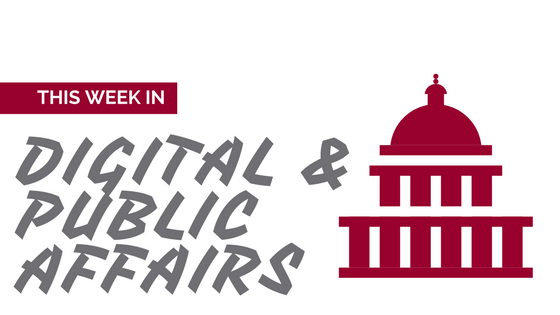
Below is a roundup of key stories in digital and public affairs for this week:
Content, Digital and Social Media
Facebook and Google announced that they would be joining forces with eight French news organizations to launch fact checking tools to root out fake news in France ahead of the country’s presidential election. Facebook is also taking steps against fake news in Germany, where government officials have expressed concerns that false stories could influence a federal election in September.
The Washington Post reports on the growing popularity of a variation of Twitter “bots” called “cyborgs”. Cyborgs mix human creativity and initiative with a computer’s speed, allowing their views to gain audience while sidestepping the traditional gatekeepers of news and commentary. For example, one conservative twitter cyborg user tweets more than 1,000 times a day using “schedulers” that work through stacks of his own pre-written posts in repetitive loops. With retweets and other forms of sharing, these posts reach the feeds of millions of other accounts. One research team at Elon University in North Carolina found that “highly automated accounts” supporting President Trump — a category that includes both bots and cyborgs — out-tweeted those supporting Democrat Hillary Clinton by a ratio of 5 to 1 in the final days before the Election 2016 vote.
Gov 2.0 and Public Affairs
Wired reports that while the prevalence of apps like Countable and Democracy.io make it easier than ever to send electronic communication to members of Congress, not much has changed in how Congressional staff respond to these messages. Despite the dramatic increase in email communication by constituents over the years, research by Zogby found that a third of people who email Congress receive no response, and nearly half of those who did receive a response found it lacking, usually because they believed it failed to actually address their issue. According to Seamus Kraft of the OpenGov Foundation, software used by staffers to respond to email messages remains antiquated. To solve the software and technology problem, the OpenGov Foundation has proposed a “Congressional Digital Service” not unlike the White House’s United States Digital Service (USDS), which works to modernize government agency websites and technology.
Associations Now reports on how the Internet Movie Database (IMDb) service (now owned by Amazon) has decided to end its online message boards due to trolls and the consistent negative tenor of comments provided to the site. Associations Now attributes the lack of an investment by IMDb to modernize the commenting system to allow for self-moderation as one of the reasons that the quality of the message boards deteriorated. The IMDb website has over 250 million monthly users.
Campaigns and Elections
Motherboard goes into an in-depth analysis of Cambridge Analytica and its data analytics efforts in helping to elect President Trump. The article explores whether analysts for Cambridge Analytica utilized newly developed methods to derive peoples’ personality traits from their activity on Facebook and then crafted messages to persuade them to vote or not to vote in the 2016 general election.
These are some of the reads that matter to us for the week in digital and public affairs. Want to get in depth analysis, news and how to tips in digital and public affairs? Subscribe to our monthly newsletter here.
